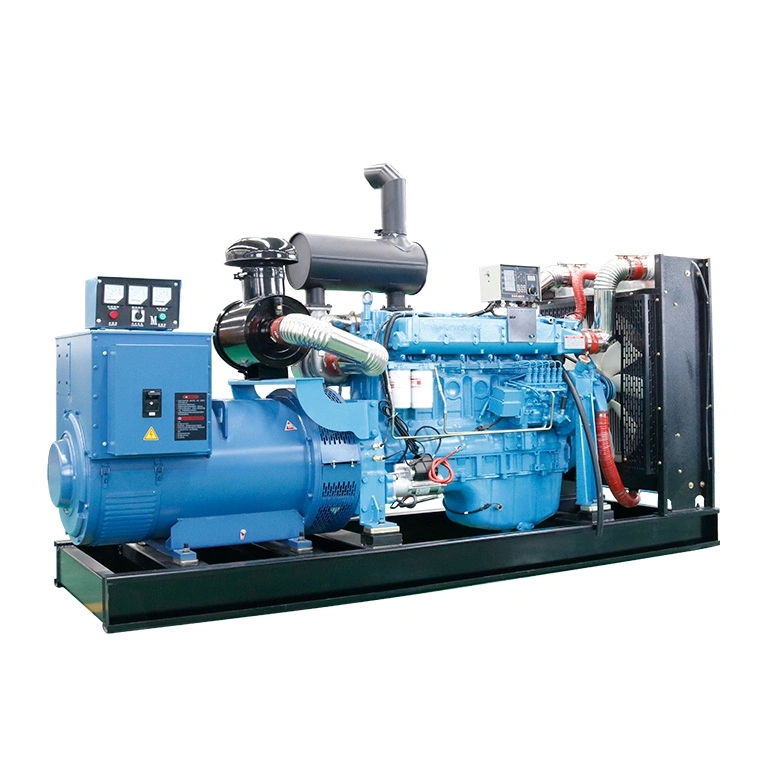Introduction
In remote areas where access to traditional power grids is limited or nonexistent, diesel generators play a crucial role in providing reliable power supply to meet the energy needs of communities, businesses, and infrastructure. These versatile machines have been a staple in remote power generation for decades, offering a dependable source of electricity in challenging environments. In this article, we will explore the key features, benefits, and applications of diesel generators for remote power supply.
History of Diesel Generators
The diesel generator has a long and storied history dating back to the late 19th century when Rudolf Diesel invented the diesel engine. Diesel engines are known for their efficiency, durability, and reliability, making them ideal for power generation applications. The first diesel generators were used primarily in industrial settings, but over time, their versatility and ruggedness made them popular for remote power supply in areas with limited access to electricity.
Key Features of Diesel Generators
Diesel generators come in a wide range of sizes and configurations, from portable units suitable for small-scale applications to large industrial generators capable of powering entire communities. Some key features of diesel generators include:
1. check : Diesel engines are known for their fuel efficiency compared to gasoline engines, making diesel generators a cost-effective option for remote power supply.
2. Durability: Diesel generators are designed to withstand harsh operating conditions, making them well-suited for use in remote and off-grid locations.
3. Reliability: Diesel generators are known for their reliability and long service life, providing continuous power supply even in the most challenging environments.

4. Power Output: Diesel generators are available in a wide range of power outputs, from a few kilowatts to several megawatts, making them suitable for a variety of applications.
Benefits of Diesel Generators for Remote Power Supply
There are several benefits of using diesel generators for remote power supply, including:
1. Independence from the Grid: Diesel generators provide a reliable source of power independent of the main grid, making them ideal for remote locations where grid connectivity is limited or unreliable.
2. Quick Start-Up: Diesel generators can be started and brought online quickly, providing power in emergency situations or during planned outages.
3. Long Service Life: Diesel generators are known for their durability and long service life, reducing the need for frequent maintenance and replacement.
4. Fuel Availability: Diesel fuel is widely available around the world, making it easy to source fuel for diesel generators in remote areas.
Applications of Diesel Generators for Remote Power Supply
Diesel generators find a wide range of applications in remote power supply, including:
1. Off-Grid Communities: Diesel generators are commonly used to provide power to off-grid communities that are not connected to the main electricity grid.
2. Telecom Towers: Diesel generators are used to power telecom towers in remote locations where grid power is unavailable or unreliable.
3. Mining Operations: Diesel generators are essential for powering mining operations in remote areas where access to grid power is limited.
4. Disaster Relief: Diesel generators are deployed in disaster-affected areas to provide emergency power for relief efforts and temporary shelters.
Challenges and Considerations
While diesel generators offer many benefits for remote power supply, there are also challenges and considerations to keep in mind, including:
1. Environmental Impact: Diesel generators emit pollutants such as nitrogen oxides and particulate matter, which can have negative environmental impacts if not properly controlled.
2. Fuel Storage and Logistics: Diesel fuel must be stored and managed properly to ensure a reliable fuel supply for diesel generators in remote locations.
3. Maintenance Requirements: Diesel generators require regular maintenance to ensure optimal performance and reliability, which can be challenging in remote areas with limited access to service technicians.
4. Noise and Emissions: Diesel generators can be noisy and emit exhaust fumes, which may be a concern in residential or sensitive environments.
Future Trends and Innovations
As technology advances, new trends and innovations in diesel generator technology are emerging to address some of the challenges associated with traditional diesel generators. Some future trends and innovations include:
1. Hybrid Systems: Hybrid systems combining diesel generators with renewable energy sources such as solar or wind power are becoming increasingly popular for remote power supply, reducing fuel consumption and emissions.
2. Smart Monitoring and Control: Advanced monitoring and control systems are being developed to optimize the performance and efficiency of diesel generators in remote applications.
3. Emission Control Technologies: New emission control technologies are being implemented to reduce the environmental impact of diesel generators, such as diesel particulate filters and selective catalytic reduction systems.
Conclusion
Diesel generators play a vital role in providing reliable power supply to remote areas where access to traditional power grids is limited. With their fuel efficiency, durability, and reliability, diesel generators are well-suited for a variety of applications, from off-grid communities to disaster relief efforts. While there are challenges and considerations to be addressed, ongoing innovations in diesel generator technology are paving the way for more sustainable and efficient power solutions for remote power supply.
